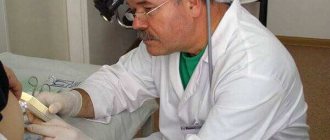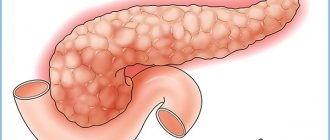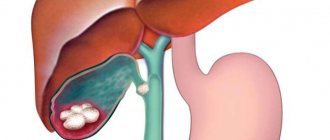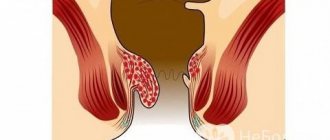Pancreatitis is a fairly common disease of the pancreas, characterized by inflammatory processes and disorders of the secretory functions of the organ. When the first signs of pancreatitis appear, the question naturally arises: “Which doctor should I contact for pancreatitis?”
If a person notices such manifestations of pancreatitis as pain in the epigastric region of the stomach, nausea and a feeling of heaviness after eating, constipation or diarrhea, an unpleasant odor and taste in the mouth, he must immediately contact a medical institution for further diagnosis of the disease.
Who to contact for chronic pancreatitis
In order to decide where to start on your path to healing, you need to analyze your condition.
Warning symptoms to look out for:
Pancreatic diseases
- pain in the upper abdomen, as well as in the left hypochondrium, aggravated by eating;
- nausea;
- problems with stool (both diarrhea and constipation are possible);
- gas formation, belching;
- weakness;
- poor appetite.
When the pancreas is inflamed, sometimes not only the hypochondrium hurts, but also the left side of the back, which can be confusing, since such symptoms resemble osteochondrosis, for which few people see a doctor.
If you experience regular but tolerable pain in the epigastric region, the most reasonable decision would be to seek medical help from a therapist. At the appointment, the attending physician will conduct an examination, prescribe the necessary tests and give a referral to a specialist who deals with this problem, usually a gastroenterologist. Also, the therapist will definitely draw the patient’s attention to the need to follow a therapeutic diet, since this is one of the main ways to combat the disease. If the pancreas is damaged, spicy, fried, salty, sweet, smoked foods, carbonated drinks, coffee and alcohol are prohibited. It is important to remember that there is no need to be shy in matters related to health, so if you have any doubts about whether you can or cannot use this or that product, it is better to check this with your doctor once again, because he is the one who is aware of all the features of the course of a particular disease and can give a detailed answer. The same rule applies to traditional methods of treatment. Many of them are really good and can help relieve the condition, but a doctor must still give permission.
The same algorithm applies to cases when the patient suffers from chronic pancreatitis - first of all, he goes to the therapist.
Medicines
Drug treatment is prescribed taking into account the complexity and duration of the disease. Bile-containing agents help activate the excretory processes of bile and affect digestion and activity in the small intestine. Choleretic agents are quickly absorbed into the circulatory system, entering the liver and increasing the secretion of bile acids into the bile capillaries. As a result, bile becomes fluid. One of the drugs is Odeston. This choleretic agent is used for stagnation of bile. The action is aimed at expelling bile from the ducts, resulting in pain relief. In addition to the main task - to treat the pancreas, the drug performs another important task - it removes cholesterol.
If you are sick, do not rush to take medications. The drug is prescribed by a doctor after diagnosis. In case of severe pain, it is allowed to take an antispasmodic before the ambulance arrives. This will temporarily soothe the diseased organ. Cold must be applied to the affected area. “No-spa” is useful for spasms. These are not tablets for treatment, but provide an analgesic effect.
There are many medications for pancreatitis. Give your choice to products that remove signs of disease and restore damaged cells. Doctors' prescriptions often contain the medicine Essentiale Forte. The approximate course of treatment is one-fourth of a year. The drug attracts a minimum number of side effects. By improving metabolism in the body, the phospholipids contained in the medicine stabilize bile.
In chronic pancreatitis, the acidity of gastric juice is high. As a consequence, the pancreas suffers, and the organ experiences heavy loads. To reduce secretory function, the doctor recommends using ranitidine. The medicine facilitates the work of the pancreas. The drug is administered intravenously, and tablets are also prescribed.
https://youtu.be/o5B0R411pG4
For pancreatitis of the pancreas in the acute period, a complex of amylase, protease and lipase, or pancreatin, is prescribed. This is the basis for enzyme preparations that serve a replacement purpose. In some cases, bile-containing components or enzymes, or substances aimed at suppressing flatulence, are added to this base.
Helper plants
Natural components are also designed to restore the gland. Plants are excellent helpers in the fight against disease. Thus, the active substances contained in the golden mustache plant provide a positive therapeutic effect. The herb is used in two forms:
- in the form of a decoction;
- in the form of oil.
Another herbal component actively used in the treatment of the pancreas is stevioside. It is a natural sweetener from the stevia plant. Due to its beneficial properties, it is used to treat many diseases.
Who can help with acute pancreatitis?
An attack of acute pancreatitis cannot be ignored. During it, a person feels a piercing pain in the upper abdomen, which indirectly indicates problems with the pancreas. To provide timely medical assistance in such cases, you must urgently call an ambulance. It is necessary to understand that the patient is experiencing unbearable pain at this time, and delay is fraught with serious complications, including death.
Acute abdominal pain in any case is a reason to urgently consult a doctor
The medical team that arrives at the call will provide the necessary first aid and decide which department is best to take the patient to. Most often, people with acute pancreatitis are hospitalized in the intensive care unit, but for certain reasons this may be in the departments of surgery, gastroenterology, or therapy.
In order to confirm the primary diagnosis and establish the presence or absence of concomitant diseases, upon admission to the hospital a number of tests and studies will be prescribed:
- blood test (general and biochemical);
- urine test (general and amylase analysis);
- coprogram;
- ECG;
- Ultrasound of the abdominal organs;
- MRI, with which the doctor checks for the presence or absence of tissue changes;
- CT;
- angiography of the pancreas;
- retrograde cholecystopancreatography.
Who treats the patient after taking a history and confirming the diagnosis? A surgeon and gastroenterologist, who deals primarily with problems with the gastrointestinal tract, select the necessary treatment, after which everyone is required to receive a number of recommendations on taking medications and following a therapeutic diet. Next, changes in the health of the pancreas will be monitored by the local therapist. If necessary, he will also give a referral for examination to a gastroenterologist, endocrinologist or oncologist.
General characteristics of the problem
Many pathological conditions of the pancreas have similar manifestations.
- Pain. Appear in the upper abdomen, spreading to the epigastric region and hypochondrium. They may have a girdling nature, radiating to the back, under the left shoulder blade. As a rule, they are not removed after taking analgesics and antispasmodics. Depending on the characteristics of the development of the disease, they can be paroxysmal and constant, worsening after overeating, abuse of fatty, spicy and fried foods, as well as after drinking alcohol. Under the influence of heat, the pain increases, and from cold it decreases somewhat. They weaken if the patient lies on his side with his knees drawn to his chest, or sits leaning forward.
- Dyspeptic manifestations: flatulence, nausea, vomiting that does not bring relief, stool disorders. The stool becomes bulky, acquires a mushy consistency and an unpleasant odor. A characteristic sign of pancreatic diseases is “fatty” feces. Diarrhea may be replaced by constipation.
- Loss of appetite, rapid weight loss.
- With the development of pathological conditions, a change in skin color is observed: it acquires a yellowish tint or pronounced pallor. Sometimes there is cyanosis of the fingers, nasolabial triangle and abdominal skin.
The appearance of such symptoms is due to a number of reasons.
- Alcohol abuse;
- errors in nutrition: unbalanced menu, frequent consumption of fatty, spicy foods, significant gaps between meals;
- diseases of the gallbladder and duodenum;
- abdominal injuries, surgical interventions, consequences of certain diagnostic procedures;
- long-term, especially uncontrolled use of medications that act aggressively on the gland (antibiotics, estrogen-containing drugs, glucocorticosteroids, acetylsalicylic acid, some types of diuretics, sulfonamide drugs, etc.);
- past infections (mumps, hepatitis B, C);
- the presence of parasites in the digestive tract;
- congenital anomalies of the pancreatic duct;
- general metabolic disorder;
- hormonal imbalance;
- vascular pathologies.
Acute pancreatitis
A condition characterized by a disruption in the release of enzymes produced by the gland into the duodenum. When activated in the organ itself, they begin to destroy it and provoke an inflammatory process.
The main symptom of acute pancreatitis is pronounced pain in the upper abdomen, most often girdling. Painkillers do not provide relief. Dyspeptic symptoms characteristic of diseases of the pancreas appear: vomiting, which does not alleviate the condition, bowel dysfunction, general weakness.
As first aid, you should apply ice to the area of the pancreas, and then seek urgent medical help: this disease is treated in a hospital, as intravenous administration of drugs is required.
When you start looking for information about which doctor to contact when your pancreas hurts, you should listen to the symptoms of the pathology. There are situations when the patient is tormented by the kidneys, and he is sent to a gastroenterologist. Manifestations of the disease in the chronic development of pancreatitis:
- Painful phenomena in the abdomen, under the rib on the left side, which intensify when eating food.
- Nausea.
- Diarrhea, constipation.
- Weakness.
- Formation of gases, belching.
- Poor appetite.
nausea
If the pancreas becomes inflamed, pain occurs both under the left rib and in the back on the left. Such manifestations are often confusing, since the presence of osteochondrosis is assumed, and victims rarely go to the doctor.
If an acute attack occurs, a piercing abdominal pain develops in the upper zone, which indicates a disease of the gland. In order to help in time during an attack, it is necessary to call for medical help, since a painful attack is so unbearable and results in severe complications that death is possible. Doctors will provide initial medical care and take the victim to a hospital.
Which doctor will undertake subsequent therapy depends on complete completion of the required examination. In a medical institution, treatment of the pancreas is carried out in surgery, gastroenterology or therapy.
Acute pancreatitis
nausea
Acute pancreatitis
The pancreas plays a vital role in the digestive process. It is here that enzymes are produced that break down carbohydrates in the duodenum. In addition, the pancreatic juice released by it activates digestion.
During inflammatory processes or blockage of the gland ducts, this juice and the enzymes it contains stop flowing into the stomach. They have a destructive effect on the gland itself, causing severe pain, and also lead to the release of toxins into the blood.
As a result, the functioning of many organs is disrupted, but the liver suffers the most.
The pancreas performs very important functions in the body, therefore it is impossible to treat its pathologies on your own. Improper therapy can lead to serious consequences for the digestive tract and even death.
The most common disease affecting the pancreas is pancreatitis, which can be acute or chronic. This pathology develops due to poor nutrition, drug or alcohol poisoning, infectious diseases, and also as a complication of chronic gastritis.
In this case, you definitely need to go to a doctor to be examined and receive recommendations for treatment.
In addition, dysfunction of the pancreas can cause diabetes. After all, it is this organ that produces insulin and regulates the absorption of glucose.
Such a variety of pancreatic pathologies and their danger forces patients to consult a doctor. Depending on the severity of the pathology, its characteristics and stage, the following specialists can provide assistance:
- therapist;
- gastroenterologist;
- surgeon;
- endocrinologist;
- oncologist.
In case of acute pancreatitis, the patient requires urgent hospitalization
With slight discomfort in the abdomen, not every person immediately goes to the doctor. But the acute form of pancreatitis, which can be life-threatening, always manifests itself with severe symptoms.
They force most patients to call an ambulance or at least visit their local doctor.
This must be done, as without timely assistance there can be serious consequences.
You should consult a doctor if you have the following symptoms:
- severe stabbing, burning pain in the navel area and on the left, it can radiate to the back, and does not subside when taking painkillers;
- vomiting mixed with bile;
- violation of stool, and particles of undigested food are observed in it;
- severe flatulence;
- temperature increase.
With such symptoms, you should not think about which doctor to contact, because you need to call an ambulance as soon as possible. Usually the patient is hospitalized in the surgery department, and in especially severe cases - in intensive care.
There, after the necessary examination, a decision is made on what treatment the patient requires. The help of a surgeon is necessary in case of blockage of the pancreatic ducts, the presence of cysts or tumors that cause disruption of its functions.
Sometimes, in the presence of serious processes of tissue necrosis, removal of part of the organ is required.
Avoidance of food and cold heating pads are necessary for several days. Then the attending physician prescribes special medications and diet.
After discharge from the hospital, the patient is given recommendations for further treatment, since pancreatitis requires a special diet and observation by a doctor.
Therapist's help
When symptoms of digestive disorders first appear, the primary diagnosis is carried out by a local doctor. It is he who checks the localization of pain, finds out the presence of other symptoms and prescribes an examination.
And if necessary, the therapist gives a referral for consultation with specialists or hospitalization. Often the signs of pancreatitis resemble manifestations of osteochondrosis, peptic ulcer, pyelonephritis and even herpes zoster.
Therefore, it is first necessary to make a correct diagnosis, and then find out who treats such a disease.
Most often, the treatment of pancreatic pathologies is carried out by a therapist and a gastroenterologist.
It is from the therapist that you can get a referral for examination. An ultrasound is usually prescribed, and if necessary, an MRI. Urinalysis, general and biochemical blood tests are also needed. They detect the presence of enzymes in the blood, ESR, and leukocyte levels. Only after confirmation of the diagnosis is the patient referred to a doctor who treats such pathologies.
The therapist also sees the patient after discharge from the hospital, where he was treated for acute pancreatitis. Patients with this diagnosis are registered.
Gastroenterologist
With pancreatitis, the functioning of all digestive organs is disrupted. After all, due to the cessation of the production of necessary hormones and enzymes, food cannot be digested normally.
And as a result of inflammatory processes, many toxins are released, which cause liver damage. Therefore, patients with this pathology must be observed by a gastroenterologist.
This is the main specialist involved in the treatment of pathologies of the digestive system.
Symptoms of pancreatic inflammation
The gastroenterologist, in addition to the examination methods prescribed by the therapist, often recommends a coprogram, gastroscopy, X-ray examination of the gland using contrast, transabdominal ultrasound or endoscopic retrograde cholangiopancreatography. These methods can confirm or refute the primary diagnosis, as well as identify problems in the functioning of other digestive organs.
Such an examination allows you to determine the condition of the pancreatic ducts, the presence of calcification processes, the formation of calcifications, cysts or areas of tissue compaction.
This makes it possible to notice tissue atrophy, narrowing of ducts or the development of tumors in time.
https://youtu.be/wyRndk4XkL8
When should you contact an endocrinologist?
The pancreas produces hormones vital to the human body: glucagon, insulin and somatostatin. All of them directly affect the metabolism of glucose in the blood. Inflammation of this organ can lead to its malfunction or even tissue necrosis, which threatens the development of diabetes mellitus. That is why consultation with an endocrinologist in such cases is vital. The doctor will register the patient with a dispensary, select the required dosage of insulin, if necessary, or prescribe other hormone replacement therapy.
The pancreas is a unique organ that not only participates in the digestion process, but also synthesizes vital hormones
Treatment of viral hepatitis
Depending on the pathogen, doctors distinguish the following types of hepatitis: diseases of types A and E, as a rule, end favorably, and hepatitis B, C, D, G become chronic and threaten dangerous complications (cirrhosis, cancer).
The clinical picture for all types of hepatitis is similar: pain on the right under the ribs, yellow discoloration of the skin and sclera, rash, discoloration of feces, darkening of urine. If such symptoms appear, you should visit an infectious disease specialist.
As a rule, hepatitis is treated in an inpatient department. The doctor prescribes antiviral drugs that affect the cause of the disease. In this case, the infectious disease specialist must engage in systematic monitoring of the condition of the liver. Indeed, in many cases, active inflammation provokes liver failure.
If the therapist referred to an oncologist
Many people shudder at the mere mention of the word “oncologist.” But do not panic if the therapist has given a referral to this specialist, because a problem detected in time can be completely solved with the help of modern treatment methods.
Untimely treatment of pancreatitis may well lead to tumor diseases. They can be detected using ultrasound, CT, MRI and other studies that are carried out upon patient admission to the hospital. Cysts or cancerous tumors can form in the pancreatic tissue. In such cases, consultation with an oncologist is strictly necessary, because only he can establish an accurate diagnosis and prescribe adequate treatment. If necessary, a decision is made on surgery and chemotherapy.
Inflammation of the pancreas is a serious disease that requires at least consultation with a specialist who treats the organs of the gastrointestinal tract. You should not delay consulting a doctor, because in addition to the main illness, concomitant diseases pose a huge danger, the main one of which is diabetes.
Examination by a dermatologist
If diseases of the hepatobiliary system are accompanied by a rash, itching, redness of the skin, then you can visit a dermatologist. The doctor will engage in diagnostic procedures and special studies to identify functional liver failure and refer the patient to a more specialized specialist. In this case, you should take the tests responsibly. It is important to identify pathology at an early stage so that the outcome of treatment is favorable.
A dermatologist is visited if skin manifestations occur in diseases of the biliary tract
Diagnosis of pancreatic diseases
Symptoms of such pathologies are often similar to signs of disturbances in the functioning of other organs of the digestive system. Therefore, comprehensive diagnostics plays an important role.
- Laboratory methods (biochemical tests of urine and blood, coprogram, tests detecting enzymatic deficiency of the gland).
- Instrumental methods (x-ray and ultrasound examination, fibroesophagogastroduodenoscopy, contrast duodenography, computed tomography, gland biopsy).
What questions to ask at your doctor's appointment?
Modern treatment of pancreatitis is not limited to the use of medications, so you need to prepare to comply with a number of conditions, and in some situations, completely change your lifestyle for a successful recovery.
Even after rehabilitation, there is a risk of recurrence of signs of the disease, so when visiting a doctor it is appropriate to ask what actions can prevent this:
Try to find out:
- What to do in case of sudden onset of pain
- What foods can be eaten and which should be limited, in what form should food be served after acute conditions.
- For what period of time should you adhere to therapeutic nutrition?
- Should you stop smoking and drinking alcohol?
- How often should you undergo examinations, tests and ultrasound examinations?
People suffering from such a pathology actually have to eat right throughout their lives and comply with conditions that prevent relapses of the disease, so it is better to write down all the nuances regarding the diet, regimen and stopping unwanted exacerbations.
In addition, it is the doctor’s responsibility to inform the patient about the inevitability of severe complications and negative consequences if medical requirements are not met. But the patient himself can ask for advice on these important issues.











